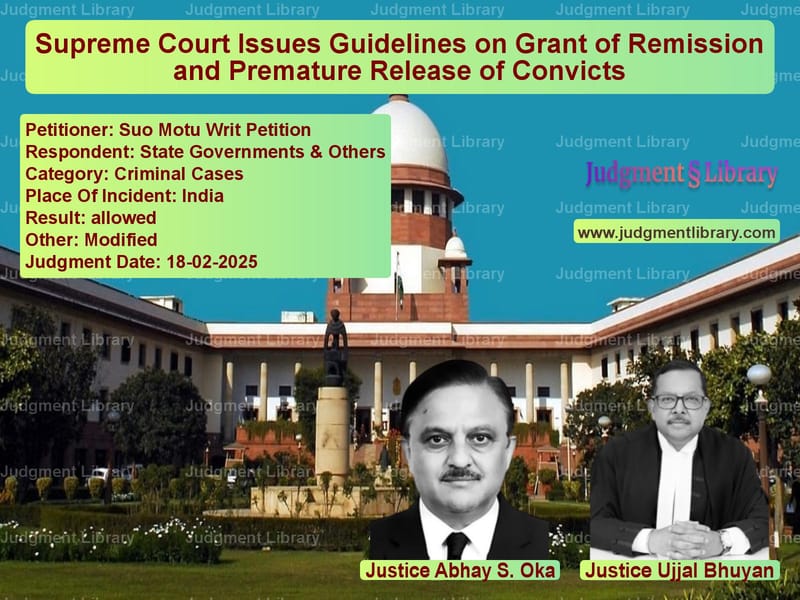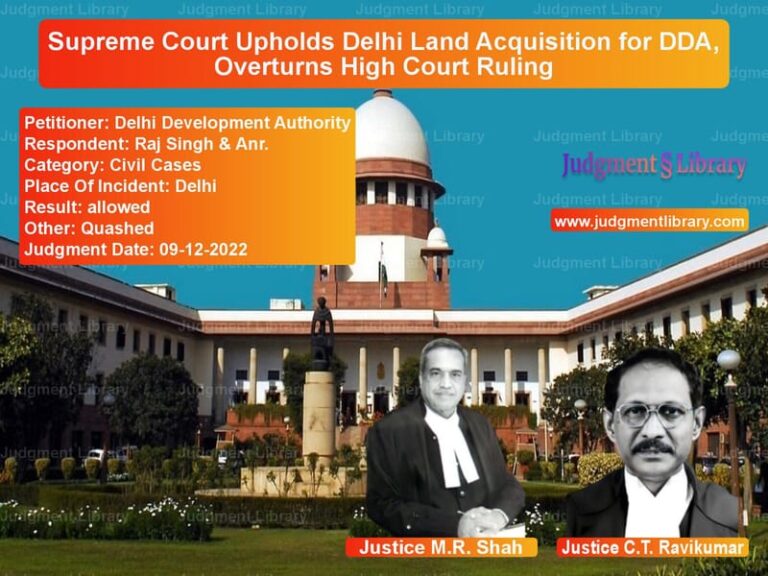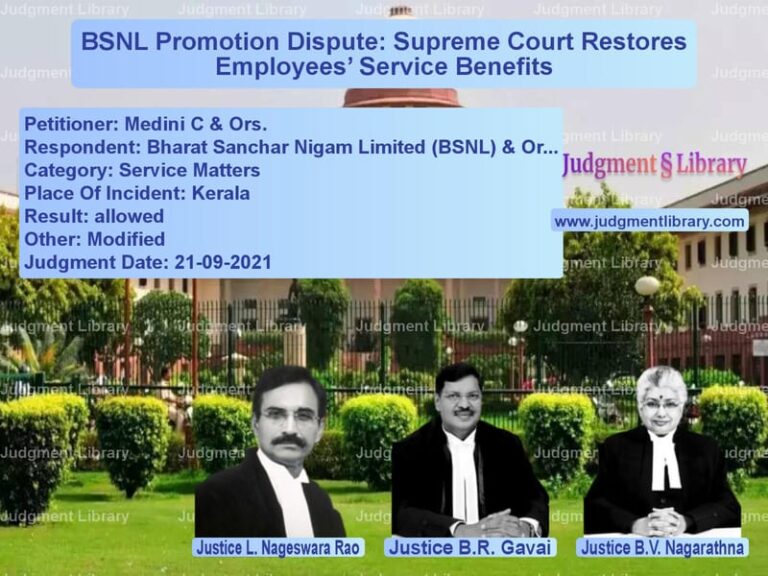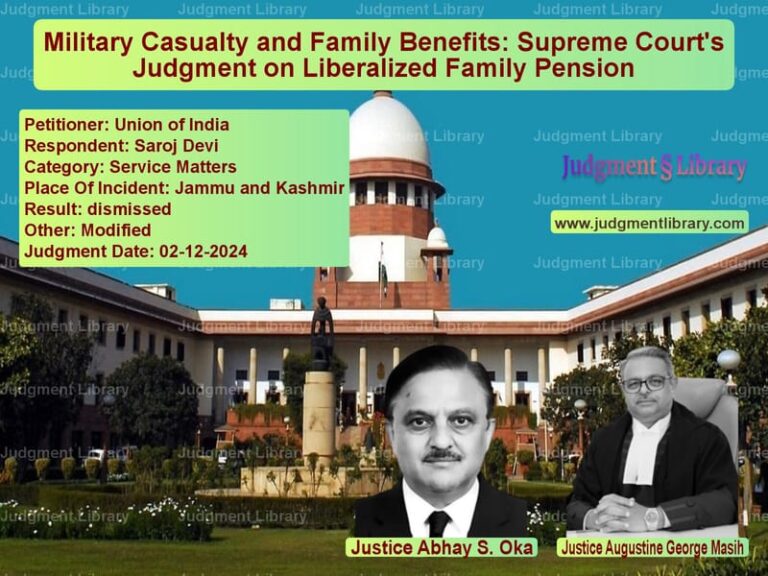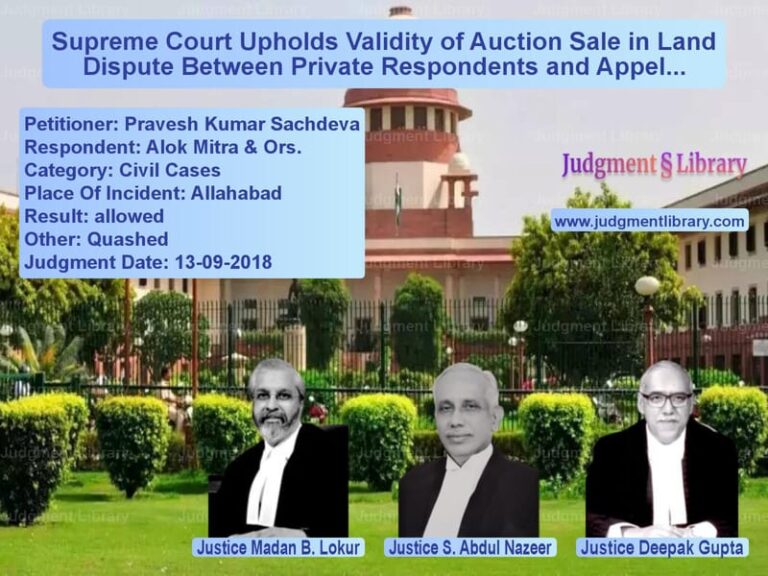Supreme Court Issues Guidelines on Grant of Remission and Premature Release of Convicts
In a significant ruling, the Supreme Court of India has issued comprehensive guidelines regarding the grant of remission and premature release of convicts, clarifying the legal framework surrounding the exercise of these powers by the appropriate government. The judgment, delivered in a suo motu writ petition concerning bail policies, lays down the procedure to be followed when considering remission and ensures that the rights of convicts are safeguarded through a fair and transparent process.
Background of the Case
The suo motu writ petition was initiated by the Supreme Court to examine the policy strategy for granting bail and remission. The case particularly focused on whether the appropriate government could exercise its power to grant remission without an application from the convict and what procedural safeguards must be in place to prevent arbitrary decisions.
Additionally, the Court considered the limitations imposed under Section 432 of the Code of Criminal Procedure (CrPC) and Section 473 of the Bharatiya Nagarik Suraksha Sanhita (BNSS) concerning the grant of remission.
Legal Issues Considered
- Whether the appropriate government can grant remission without a formal application from the convict.
- Whether conditions can be imposed on remission orders and the extent of their enforceability.
- The legality of automatic revocation of remission upon breach of conditions.
- The obligation of the government to record reasons when rejecting remission applications.
Arguments by the Amicus Curiae
The amicus curiae, Ms. Liz Mathew, assisted by Shri Navneet R., submitted detailed recommendations on the legal framework governing remission. The key arguments presented were:
- The power under Section 432 of the CrPC must be exercised in a fair and transparent manner to prevent arbitrary decisions.
- Convicts should not be required to file applications for remission if a government policy exists for premature release.
- Prison authorities should actively identify eligible prisoners and initiate remission proceedings instead of placing the burden on convicts.
- Any rejection of remission should be accompanied by recorded reasons to ensure accountability.
“Implementation of remission policies must be objective and transparent, ensuring that the constitutional guarantees under Articles 14 and 21 are upheld.”
Arguments by the Government
The State Governments contended:
- Each remission case must be evaluated on an individual basis, considering the conduct of the convict and the nature of the crime committed.
- Automatic remission without an application could lead to the premature release of convicts who pose a threat to society.
- The government retains the authority to impose conditions on remission orders, ensuring that the convict does not engage in unlawful activities post-release.
“The power of remission is a discretionary function of the government, and each case must be carefully examined to balance public safety and rehabilitation.”
Supreme Court’s Observations
The Supreme Court laid down crucial principles governing the grant of remission:
- The government is obligated to consider remission cases without requiring formal applications from convicts if a policy exists.
- Prison authorities and State Legal Services Authorities must play an active role in identifying and processing remission cases.
- Conditions imposed on remission must be reasonable, non-oppressive, and capable of being complied with.
- Revocation of remission cannot be automatic; a convict must be given an opportunity to respond before their remission is cancelled.
- Every rejection of remission must include a written explanation to enable the convict to seek legal remedies.
“Remission decisions must be based on a transparent and structured framework, ensuring fairness and preventing arbitrariness.”
Final Judgment
The Supreme Court issued the following directives:
“Where there exists a policy for remission, the State Government must suo motu consider cases of eligible convicts without requiring formal applications. Orders rejecting remission must contain detailed reasons and be communicated to the convict, ensuring access to legal remedies.”
Additionally, the Court directed all States and Union Territories to formulate an exhaustive remission policy within two months, aligning with the principles outlined in the judgment.
Impact of the Judgment
This landmark ruling has significant implications for the administration of justice:
- It prevents undue delays in remission proceedings by making prison authorities responsible for identifying eligible convicts.
- It strengthens transparency and accountability in remission decisions.
- It ensures that convicts are not arbitrarily denied remission and have access to legal recourse.
- It sets a precedent for fair treatment of convicts under Articles 14 and 21 of the Constitution.
By issuing these directives, the Supreme Court has reinforced the fundamental principle that remission must be granted based on objective criteria, ensuring justice and rehabilitation.
Petitioner Name: Suo Motu Writ Petition.Respondent Name: State Governments & Others.Judgment By: Justice Abhay S. Oka, Justice Ujjal Bhuyan.Place Of Incident: India.Judgment Date: 18-02-2025.
Don’t miss out on the full details! Download the complete judgment in PDF format below and gain valuable insights instantly!
Download Judgment: suo-motu-writ-petiti-vs-state-governments-&-supreme-court-of-india-judgment-dated-18-02-2025.pdf
Directly Download Judgment: Directly download this Judgment
See all petitions in Bail and Anticipatory Bail
See all petitions in Contempt Of Court cases
See all petitions in Judgment by Abhay S. Oka
See all petitions in Judgment by Ujjal Bhuyan
See all petitions in allowed
See all petitions in Modified
See all petitions in supreme court of India judgments February 2025
See all petitions in 2025 judgments
See all posts in Criminal Cases Category
See all allowed petitions in Criminal Cases Category
See all Dismissed petitions in Criminal Cases Category
See all partially allowed petitions in Criminal Cases Category

